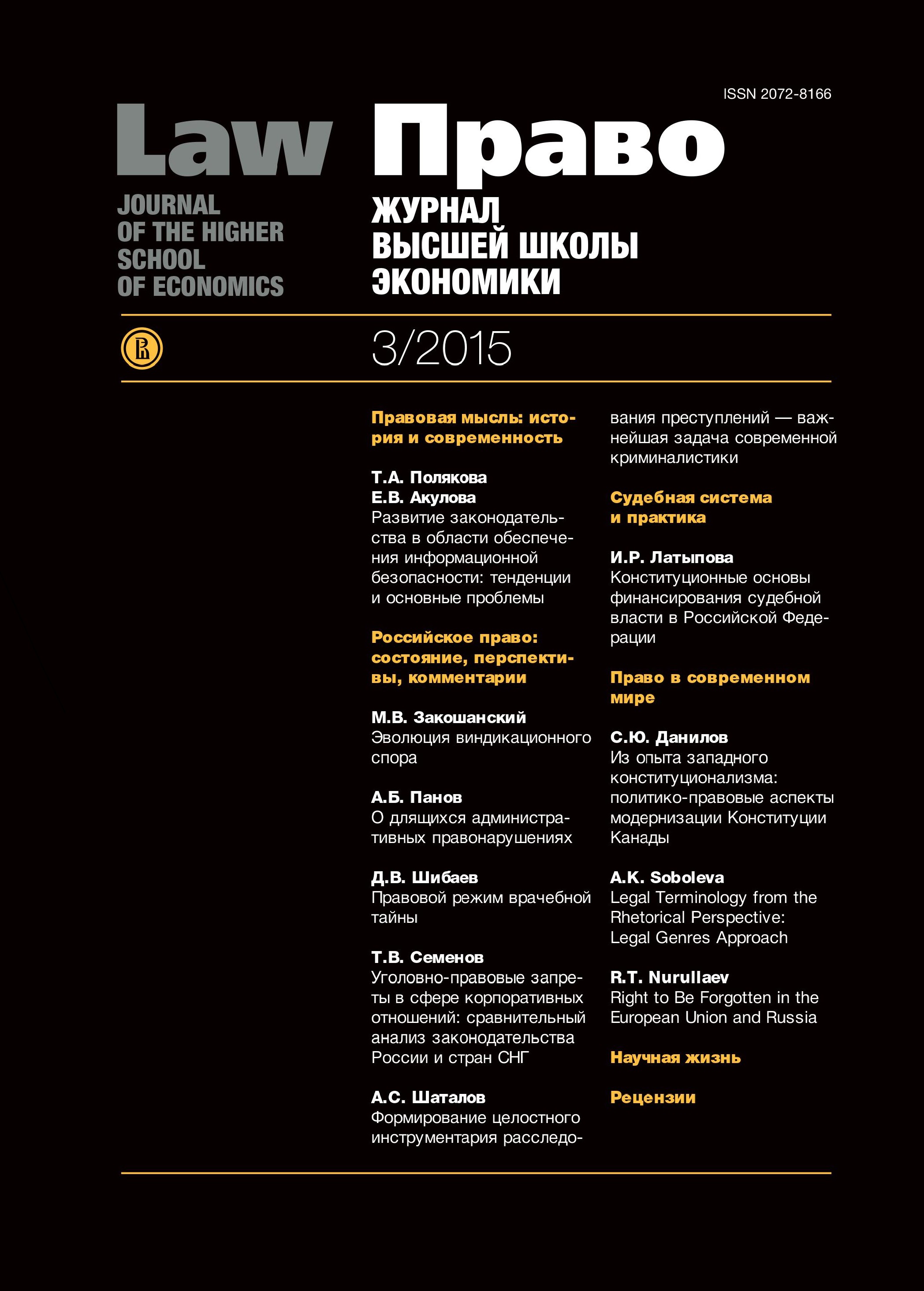О длящихся административных правонарушениях
Аннотация
В статье автор на основе типичных случаев из судебной практики анализирует современное состояние разработанности проблемы квалификации административных правонарушений в качестве длящихся. На основе проанализированных подходов к понятию длящегося правонарушения формулируются критерии, которым должно удовлетворять понятие «длящееся правонарушение». Автор отмечает, что различия в понимании судьями данного термина приводят к появлению большого количества судебных постановлений, призванных исправлять ошибки в толковании норм закона нижестоящими судами. Это ведет к увеличению нагрузки на систему в целом и фактически к появлению прецедента, поскольку отсутствие в законе четкого определения данного понятия вынуждает российские суды вырабатывать в каждом деле подход к возможности отнесения правонарушений в определенной области к категории «длящихся». Подчеркивается также важность вопроса, какое правонарушение считать длящимся, поскольку ст. 4.5 Кодекса об административных правонарушениях РФ устанавливает срок привлечения к административной ответственности в два месяца (или один год по указанным составам), который по общему правилу начинает течь со дня совершения нарушения, а в случае с длящимся правонарушением — со дня его обнаружения. Момент обнаружения длящегося правонарушения является не менее актуальным вопросом в судебной практике, так как в силу ч. 2 ст. 4.5 КоАП РФ именно с него исчисляется срок давности привлечения к административной ответственности. В статье отмечается, что буквальное следование приведенным определениям в ряде случаев не в полной мере согласуется с порядком возбуждения дела об административном правонарушении, ведь в силу п. 1 ч. 1 ст. 28.1 КоАП РФ возбуждение дела связано с получением достаточных данных, указывающих на наличие события административного правонарушения. На момент составления протокола об административном правонарушении у уполномоченного лица могут отсутствовать все необходимые документальные подтверждения. Время, необходимое для их сбора, может превышать давностный срок и в результате в возбуждении дела будет отказано по истечении срока давности. Такие ситуации возникают, например, при назначении по материалам проверки соответствующей экспертизы.


















